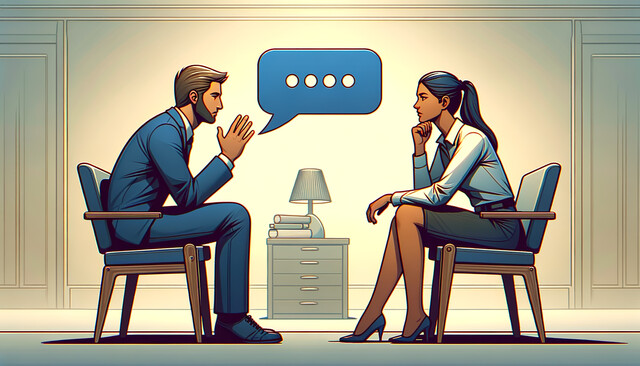For those with social anxiety, the internet is often a valuable source of information and tools. It removes the pressure associated with in-real-life social interactions that causes those who have social anxiety to avoid socializing in the first place. Going online also provides people access to resources and information from multiple sources that they most likely would not find offline.
This article will look at what resources are available online to those with social anxiety. Included will be topics such as the online presence of support organizations, social media resources, and podcasts. Keep in mind that what is covered here is only a small sampling of what is available for those with social anxiety and their supporters. To expand on what is listed below or even to find web resources specific to your own circumstances, you may want to consider doing a web search of your own.
Support Organization Websites
The largest web resource for social anxiety is found in support organizations. The groups are dedicated to providing information to those with social anxiety and their loved ones, offering tools and strategies, and overall functioning as a place to get help. They are often helmed by those who are deeply familiar with the subject at hand. Often, you may even find that those who are running and working for social anxiety support organization have social anxiety themselves. As a result, these groups can be a highly valuable and relatable resource for those with social anxiety.
Some of the organizations out there are focused solely on social anxiety, and thus the content of their websites and associated online platforms are going to reflect that. Others have a focus on self-care and mental health, both of which includes social anxiety disorders. As a result, they may offer a mix of resources covering the full extent of topics in their focus. For persons who have social anxiety that is coupled with other mental health conditions and disorders, those groups can offer information that applies to those combinations.
-
Social Anxiety Support (SAS)--SAS is an online organization that aims to provide support and resources to those who have social anxiety disorder. It functions as an all-in-one location for social anxiety resources, including forums, reviews for treatment programs and therapists, information on support groups, and news releases. For the most part, it is a resources that serves as a gateway to other resources and includes feedback on the efficacy of those resources.
The bulk of what SAS has to offer is created by its members, who are either mental health professionals or who have some form of social anxiety disorder. As a result, the information is considered to be coming from a knowledgeable source. It's monitored by its members and by the website's managing company Neowave Media on a regular basis, so falsified or harmful information is usually caught and corrected quite quickly. Membership is free and grants users full access to all of SAS's available resources.
-
Social Anxiety Institute (SAI)--An online treatment and information network, SAI focuses primarily on helping users safely overcome their social anxiety. It originally began offline in the early 1990s, but moved online to adapt to the internet age and provide easier access to users. It does function at a physical, offline location in Phoenix, Arizona where it also offers the same services found online.
The group focuses primarily on treatment methods for social anxiety, mainly cognitive behavioral therapy. Many of the articles and information that SAI provides on its website are written by mental health professionals associated with the group. Those articles are on the scientific aspects of social anxiety, but the language isn't heavy with medical jargon, making it easily understandable and accessible for a wide audience.
-
Anxiety and Depression Association of America (ADAA)--An international group, the ADAA is one of the largest nonprofits dedicated to mental health care, awareness, and research. In addition to focusing on anxiety disorders, it also looks at depressive, trauma-related, and obsessive-compulsive disorders and the people who have them. Due to the wide range of conditions the ADAA is involved with, it can actually be an especially valuable resource for those who have social anxiety in addition to another mental health condition.
The ADAA is partnered with several other mental health organizations and advocates throughout the world. This expanded network offers dozens of access points of information and resources for those with social anxiety. The organization also has a therapist directory for anyone who is seeking professional help that can be filtered by specialty. It also offers a series of webinars on self-help strategies for mental health conditions.
-
Social Anxiety Association (SAA)--The SAA is a non-profit organization that focuses entirely on social anxiety and social phobias. Its main goals are centered on raising awareness amongst the public about social anxiety and the available treatment options. It also seeks to offer as much accurate information as possible on all things related to social anxiety to those who need it, as it becomes available.
While membership isn't necessary for people to gain access to the SAA's resources, it is available. Those who do choose to join need only to apply and have an interest in helping and supporting others. While the SAA's primary function is to educate others, it does not require any of its members to have professional status or training.
Social Media Platforms
While the "social" aspect may seem off-putting as a resource for those with social anxiety, it can actually be quite useful. Social media platforms offer access to multiple resources--much like the support organization websites above--such as information, support, and strategies used for coping with social anxiety. Social media can offer those with social anxiety an opportunity to find a community that is tailored to their needs. Information and news can be shared within those communities, and you can also get feedback on coping strategies for social anxiety.
Some social media platforms work better than others, but not everyone is going to find their online community in the same place that everyone else does. Looking around at what is available and what you are comfortable with is key. Keep in mind that it may take time and not every group is going to be perfect. Considering social media as an online resource should be done with a degree of caution. One of the biggest downsides of social media is that for every case of positivity there is, there's potentially a case of negativity to counter it. Trolls--users who actively make antagonizing comments and posts on social media--may appear and you should do your best to ignore them. If you encounter a troll while on social media who is giving you problems--no matter how indirectly--then report them using the site's reporting system.
A few social media platforms that may serve as a viable online resource for social anxiety:
-
Facebook--Many of the organizations focused on social anxiety will use Facebook as a way of reaching its audience. Following the pages of these organizations is just another way of gaining access to what they have to offer. Facebook also has groups--which can be made private by those who set them up--where users with an interest in a specific topic can gather on the site and interact. This can allow you to stay in touch with others who have social anxiety and those in your support system.
-
Pinterest--Pinterest is more like a giant online bulletin board that people stick pictures to than a "traditional" social media website. However, that does not mean that it isn't a possible resource for those with social anxiety. Pinterest collects images and information from all over the internet and users can add them--"pin"--to different boards that they set up. These boards can be on any topic and many people use them to organize different parts of their lives or to collect different things that inspire them. Those with social anxiety can find a ridiculous amount of pins related to social anxiety, from coping techniques to infographics that they can share with those who want to learn.
-
Tumblr--Tumblr is a website for blogging. Users can essentially create a blog and have it dedicated to whatever they want. Blogs and blogging can be incredibly useful for those with social anxiety or some other mental health condition because it allows them to voice their own experiences to an interested audience. You can look at blogs about social anxiety, made by people with social anxiety and relate to them. It should be noted that Tumblr is prone to trolls and some users may be hostile to other users who follow certain topics. A valuable a resource that Tumblr can be, you may want to proceed with caution if using it.
-
YouTube--In addition to using Facebook to reach their audience, social anxiety organizations may also put their information in video format and upload it to YouTube. In some cases, information about social anxiety may be better explained visually. A coping strategy, for example, may easier for people to learn by watching someone go through the movements step by step. Some channels on YouTube may even be run by users with social anxiety who vlog--video blog--about their life with it. It they talk about their experiences with social anxiety, then those videos can be another relatable resource.
Podcasts
Podcasts--which are short, radio-like programs--are popular throughout a wide audience. They can be on any topic, involve a script or be impromptu, and are available throughout the internet for download. Often, they are free or come at a very cheap price, usually hovering around a dollar or two with change. Once downloaded from the internet, they can be put on any device for offline listening.
For those with social anxiety, podcasts that cover topics related to social anxiety can be used as a source of information. Some podcasts are even designed to be used as a coping strategy to calm a person down during and anxiety or panic attack. Combining that with their ability to be played virtually anywhere and a podcast can be a prized tool for coping with your social anxiety.
Podcasts for social anxiety often come from groups who are dedicated to helping those with social anxiety and other mental health issues. They may focus entirely on social anxiety, or cover it as a part of overall mental health. Some podcasts that can be found online for social anxiety include:
-
Social Anxiety Solutions Podcast--This podcast is one of the many conducted by someone who has personal experience with social anxiety themselves and acts like an audio blog. In this case, it is from the perspective of a man named Sebastian Van Der Schrier who has social anxiety and has been working with different solutions since the early 2000s. The weekly podcast series is accompanied by a weekly video series on YouTube, as well as a newsletter that is sent directly to your inbox when you sign up. As of August 2016, there are fifty-seven podcasts available that range from around 10 minutes to a little over an hour in length.
Typically, each installment or episode delves into a different topic involving social anxiety that can potentially affect those with it. Different techniques that can be used to help with social anxiety, many of which have been tested and used by Van Der Schrier himself, are also discussed and explained. He also speaks with traditional and non-traditional experts who are familiar with social anxiety and caring for those with it. The podcast series have a more holistic approach than others, but that is fairly common with social anxiety as many tend to seek non-medical approaches to addressing their anxiety.
-
The Confident Mind Podcast--Confident Mind is a free podcast put out by psychotherapist Kyle MacDonald, who focuses his practice on behavior therapies for those with social phobias, social anxiety, and general shyness. The podcast is produced weekly, in addition to a regular blog, and covers a variety of topics related to social anxiety and other aspects of mental health. On occasion, MacDonald will include input from other mental health professionals for installments of the podcast. There are roughly sixty-five podcasts in The Confident Mind series, with a few reposted episodes.
The podcast looks at the scientific aspects of social anxiety, rather than the holistic approach of the Social Anxiety Solutions podcast. Additionally, there will be discussions related to news about social anxiety and instructions for using new strategies. It will often tie in pieces of information and tools from other parts of MacDonald's website and practice, which may feel a bit too much like self-promotion. However, much of that information is relevant to social anxiety and the topic at hand in that particular episode.
-
Shrink for the Shy Guy Podcast--Shrink for the Shy Guy combines the experience found in both of the above podcasts. The host of the podcast is Dr. Aziz Gazipura, who not only has social anxiety and shyness, but has also studied it extensively. Most of the topics and issues related to social anxiety that are discussed in each episode are based on Gazipura's experiences, however there are episodes dedicated to experiences shared by listeners. The episodes are similar in format to what you would expect from a radio talk show, and often follow a specific theme per installment.
This particular podcast does lean more towards overcoming social anxiety and shyness for the sake of dating. The mix of social anxiety and romance can be problematic, so the target audience for the podcast is more focused on those who want more romance and dating-related coping strategies for social anxiety. Its audience is narrowed even further by focusing on a primarily male audience. If looking at podcasts as an online resource, it is best to keep in mind things such as demographics beyond just social anxiety that the creators may be focusing on in their audience.





























